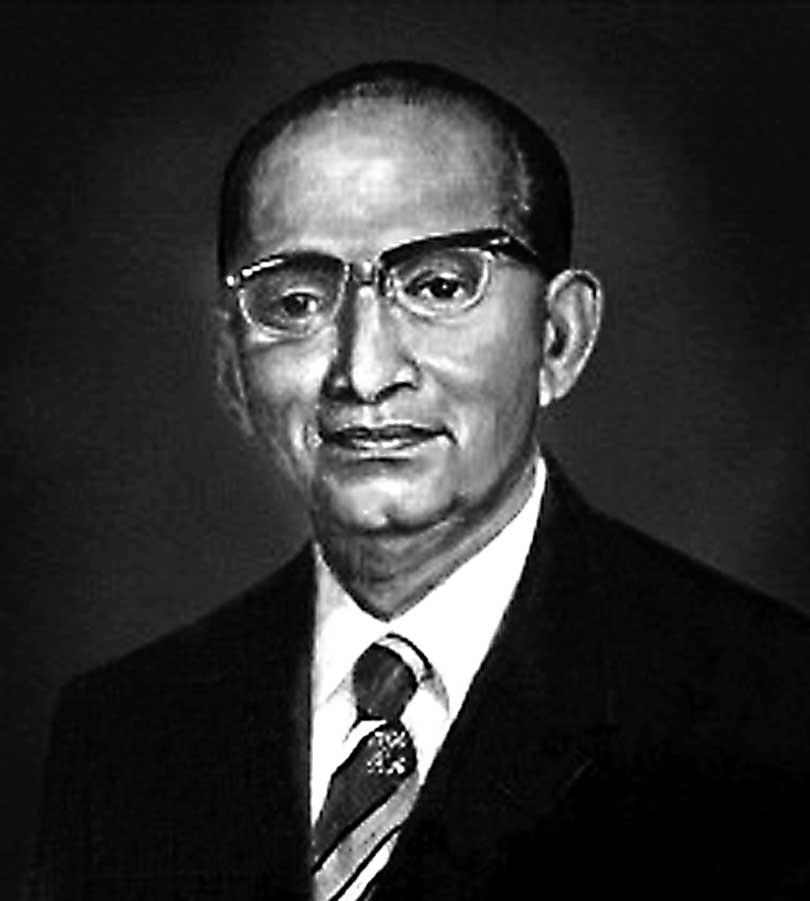Reply To:
Name - Reply Comment

 Legislation is one of the most important instruments of government in organising society and protecting citizens. It determines amongst others the rights and responsibilities of individuals and authorities to whom the legislation applies.
Legislation is one of the most important instruments of government in organising society and protecting citizens. It determines amongst others the rights and responsibilities of individuals and authorities to whom the legislation applies.
If legislative changes to our land laws were to be made with foreign grants, it is imperative that there should be legal scrutiny, research and revision of the existing statutes by legal professionals from Sri Lanka. The new statutes must support the land policy and should have a legal framework to support the governess of land and natural resources. A dialog with the people of the country is required as local cultures relating to land cannot be ignored. Then only the benefit will reach the citizens. These were the teachings of Justice Amerasinghe and Justice Christy Weeramanthry, which were well expressed in their excellent books that provide invaluable reading, titled ‘Insurance and Equality and Freedom and Some Third World Perspectives’.
August 14, 1941 was an important date, a date on which a new world order began, where goals for the world after the war were set out by the Americans and the British in a historical document called the famous Atlantic charter .
The Atlantic Charter set out a vision for the post war world; the US was to support the UK in the war, and the UK in turn had to agree to grant independence to the colonies.
Immediately following the Atlantic charter, Britain unhinged itself from the colonies followed by the BretonWoods Conference to regulate the international monetary and financial order after the conclusion of the war. In 1944 agreements were signed to set up the International Bank for Reconstruction and Development [ IBRD] presently referred to as the World Bank and the International Monetary Fund(IMF). This is the new world order which moves the world towards globalisation recommending that laws from prosperous nations should be introduced as a ‘one fit for all ‘ to all countries, with top down legislation without any investigation.

Justice Chris Weeramanthry
Thereafter, the UN has set up several organizations to govern all aspects of our property rights. The organizations directly involved in our land laws are FAO, the World Bank, Global Land Tool Network [GLTN], International Federation of Surveyors [FIG] and the Millennium Challenge Corporation [MCC] all of which have entered Sri Lanka to research revise and introduce legislation.
August 14, 1941 was an important date, a date on which a new world order began, where goals for the world after the war were set out by the Americans and the British in a historical document called the famous Atlantic Charter
The main aim of these organisations is to introduce new land laws purportedly to reduce poverty and for the country to reach a better position in the indices that they have created such as the ‘Ease of Doing Business Index’ and ‘Property Rights Index.’
Good example, is the introduction of electronics to the land registry to move in to a better position in the Doing Business Index in a hurry without the introduction of the recognised international laws that protect owners from fraud and forgery. Daily Mirror on April 11, 2018 published that we are aiming for quick wins to move up the 2019 Ease of Doing Business rankings of the World Bank, and we will be introducing e-registration. Will the electronic register be free of fraud and forgery when it operates with the archaic laws without the internationally recognised laws ?
Introduction of laws with external advice, undoubtedly is a result of being suddenly tossed into this maelstrom after centuries of colonialism, says Justice Weeramanthry in his book. He says we have not yet achieved intellectual and economic freedom, although we achieved political freedom.
The successive Governments of Sri Lanka have recognised this mechanism which receive their vitality from this new colonial power. Those who drafted the recent bill ‘Land Privatisation Act ‘being foreign economist may not have known the legal impediments for private owners created by the previous set of external advisors who introduced a foreign law repealing the common law and the deed system that governed our land rights for over a century. The Bim Saviya as it is referred to is an Australian law that was introduced by the World Bank which had deprived the private land owners of their fundamental right to access court if the ownership is affected by fraud. Private land owners cannot transfer shares to their wives and children nor can a husband and wife apply for a joint loan with a bank. Further the poor farmers were governed by a uniform land law, after privatisation they will be governed by the ethnic laws that deprive women of their rights. It is far better for the poor farmers to have support for their agriculture than owning land under such laws.
What is dangerous is that, successive Governments failed to recognise the local effort to remedy the situation. The legislation prepared by the Ministry of Justice and the Bar Association relating to ‘Prevention of Land Fraud’ and the ‘amendments to the Bim Saviya’ had not even been considered and is over nine years. Whilst statutes such as Bim Saviya, Electronic methods and Land Privatisation bill introduced by the foreign organisations seem to be receiving attention, to be rushed through without allowing any room for discussion.
Although the recommendations of the Bar Association was not acceptable to the Government, the re-engineering process for Bim Saviya commenced with the advice of a company that was selected by an advertisement made by a foreign embassy, selection too was made by them. Today the entire electronic process is based on the re-engineering process recommended by them.

William Tennekoon - Former CB Governor
In 1952, the International Bank For Reconstruction and Development [present World Bank] made their first research report about the land ownership of Ceylon. It was a report termed ‘Insecurity of Land Title’.
Based on this report on or about 1969 major changes were recommended to the land law of the country. The advisors required the Government to introduce the Australian land law known as Title Registration to remedy the ownership rights of the people. [Book on Title Insurance by Dr. A.R.B.Amerasinghe] This was the first time the World Bank then known as International Bank For Reconstruction and Development required the law now called Bim Saviya to be introduced
The Government agreed with Justice Amerasinghe, the Law Society and Mr. Tennekoon that legislation proposed by the World Bank was not acceptable to the country. It is truly disheartening that such a mechanism is not in place today when foreign funding is offered to amend our land law
The model answer to our ownership rights by the International Bank For Reconstruction and Development was not acceptable to Justice Amerasinghe who intervened at that time he was the General Manager and the Chief Law Officer of the Insurance Corporation. He expressed his view that in the process of compelling people to obtain perfect titles, local culture was ignored: Hundreds of thousands of families lived in peace sharing their undivided inheritances. To drive them by legal statutes unknown to the country would cause needless rifts and social unrest in the cultural climate of Sri Lanka.
In January 1965, William Tennekoon then the Senior Deputy Governor of the Central Bank of Ceylon also joined the discussion, submitted a memo to the Permanent Secretary to the Ministry of Internal and External Trade and Supply, Mr. Tennekoon’s report published in the book ‘Title Insurance’ written by Justice Amerasinghe is a great eye-opener for all. He pointed out that these schemes must be introduced with consultation with AG and other legal bodies as it affects the laws of Ceylon.
Great success was achieved with this intellectual team to find better solutions than introduce title registration. The Government agreed with Justice Amerasinghe, the Law Society and Mr. Tennekoon that legislation proposed by the World Bank was not acceptable to the country. It is truly disheartening that such a mechanism is not in place today when foreign funding is offered to amend our land law.
This collaboration of academics and politicians is presently seen in prosperous nations. Much of the success of prosperous countries is attributed to this co-operation between the practical and academic worlds. These nations have charters signed to protect the lands for the future generations.
Organisation called ‘Meeting on Officials on Land Administration’ (MOLA), to facilitate co-operation between land administration institutions in European countries is a good example. Their politicians provide stimulation and leadership to professionals.
Presently we continue with new world order. The FAO, World Bank, Global Land Tool Network [GLTN], International Federation of Surveyors [FIG] and new organisation from USA called the Millennium Challenge Corporation [MCC] have made several reports relating to the state of our land law: Are we ready?
1] without a legal arm to revise - working with centuries- old colonial statutes Their reports point out that our land laws are archaic. This is sadly true as we have remained with the land statutes enacted by the British Governors in1840, 1907, 1927 up-to-date, to face the challenges of the 21st century, with total absence of anticipatory planning, which alone could have assisted towards solutions for our agriculture and land ownership, 2] with seven days only available to rush to court, when bills are drafted with foreign intervention. 3] to accept the provision in the constitution that we cannot contest any of the statutes. 4] to execute leases without registering – [All leases should be registered under The State Land Act 8 of 1947 and the Act 21 of 1998] This allows a copy to be available for the public. The Government should follow the rule of law and have all leases available for the next generation to examine, as the leases extend to curtail their legal rights to land 6] land books, recordings of 100 years in 45 land registries will they be destroyed? Like in other countries there are no plans to archive the books after e-registration sets in. Are we allowing this to happen? Then, we will be rudderless without history of our lands.
Our next course of action is to set up a structure to prevent and retard the erosion of our land rights in this manner. The funding if given by foreigners should be used, to develop research programmes in the legal and agriculture fields and to retrieve the cooperation between the practical and academic world as in the early days.